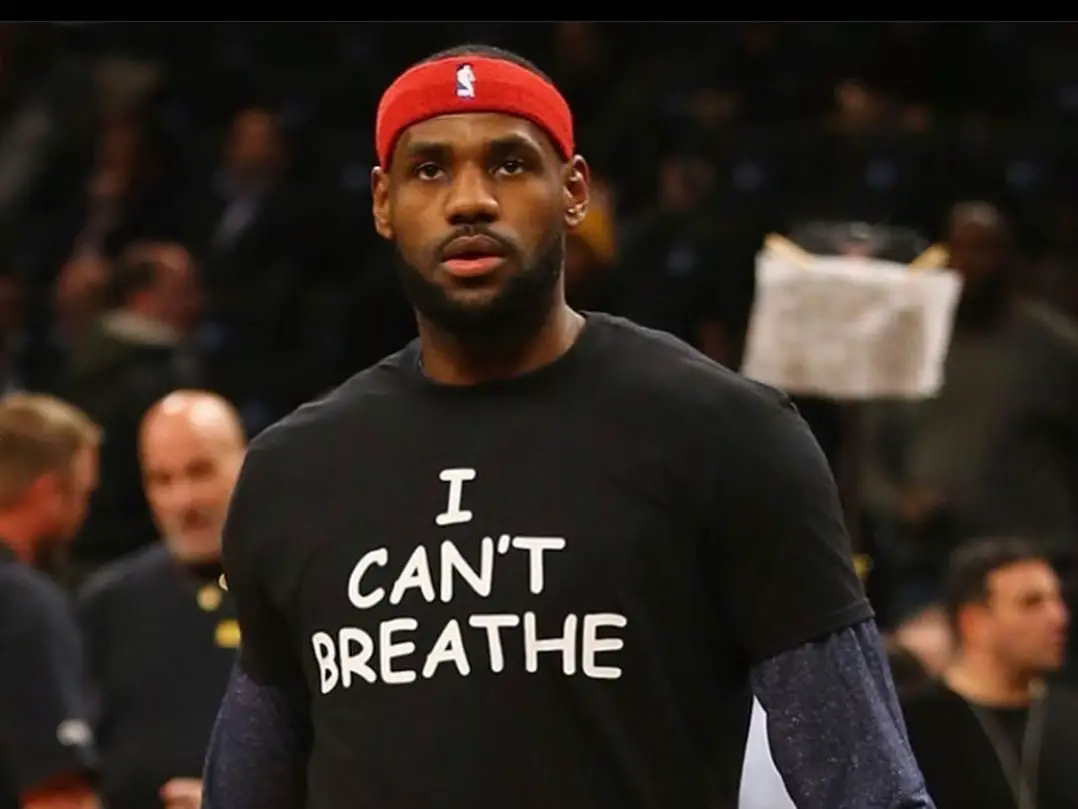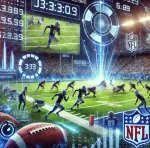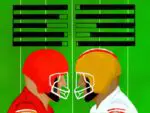Various leagues and teams are showing support for the Black Lives Matter movement after years of openly condemning it or simply hiding behind a false guise of ignorance. As protests continue throughout the world, the NFL and NBA have made statements about how they will support Black Lives Matter on their return. But, for the most part, they have detailed little structural change.
The NFL stated that they “were wrong for not listening to NFL players earlier and encourage all to speak out and peacefully protest.” This is definitely progress. In fact, a statement like this would seem unthinkable a few years ago. However, this declaration feels like too little, too late, and for the wrong reasons.
The NFL’s response comes after several players released a video saying that they “would not be silenced” and would continue to peacefully protest.
The video included a direct request to league officials that read: “We will not be silenced. We assert our right to peacefully protest. It shouldn’t take this long to admit. So, on behalf of the National Football League, this is what we, the players, would like to hear you state: ‘We, the National Football League, condemn racism and the systematic oppression of black people. We, the National Football League, admit wrong in silencing our players from peacefully protesting. We, the National Football League, believe Black Lives Matter.'”
The NFL responded with almost exactly that in a blurry home video from the NFL Commissioner, Roger Goodell. Goodell did well to honor the players’ request and acknowledge the oppression of black players and coaches. However, it would be naive to think that the NFL’s change of heart is sincerely in support of the Black Lives Matter movement. It seems far more likely that the NFL stifled peaceful protests until it was no longer an option.
The response was reportedly due to the presence of Kansas City Chiefs star quarterback Patrick Mahomes. At only 24 years old, Mahomes is the reigning Super Bowl MVP, former league MVP, and is likely the best quarterback in the league. In other words, he is the new face of the NFL.
According to anonymous league officials, Mahomes’ presence in the video forced Goodell’s hand and made sure he had to respond quickly. “Let’s put it this way: The second I saw him in that video, I knew Roger had to act quickly. Everyone, including all the owners, knows he’s the guy,” an NFL executive told Jason Reid of The Undefeated.
Considering the dramatic change in rhetoric from the league, this is clearly a PR move. It signals positive change but only after the league’s demographic make-up overpowered its old fashioned ideology.
The face of professional football has always been dictated by quarterbacks and, as many pundits have mentioned, we stand within the era of the black quarterback. Mahomes is only one of several black quarterbacks that sit atop any power ranking of the league’s top players.
These players are not just breaking records — they are changing the culture of football. Their presence has and will play a crucial role in how the league changes, but they are only the beginning.
While 70% of the NFL’s players are black, only 3 of the 32 coaches are black. As for ownership, there is not a single black majority owner in the league. Goodell is yet to announce how the league will address the structural racism that has plagued the organization. It is clear that without the representation of black owners and coaches, vocalized support for BLM is a half measure at best.
Meanwhile, the NBA is currently at odds with itself over its response to both the COVID-19 crisis and issues of race within the league. Players are split over whether the July return to play in Orlando is harmful to the social cause. A group of players, former players and analysts, believe that the return to the world stage would offer an even greater platform to discuss social issues.
Meanwhile, Kyrie Irving has made it clear that he believes the return to play would be a distraction from the push for social change. Stephen Jackson, a former player and longtime friend of George Floyd, has been heavily active in recent protests and posted a video sharing Irving’s concern about the NBA resuming play. “I love the NBA, man. That’s my family,” Jackson said. “But now ain’t the time to be playing basketball, y’all. Now ain’t the time. Playing basketball is going to do one thing: take all the attention off the task at hand right now and what we fighting for.”
On July 16, a coalition of both NBA/WNBA players and members of the entertainment industry, led by Avery Bradley and Kyrie Irving, made a statement to ESPN about their concerns and goals regarding racial issues in the league and beyond.
“We are a group of men and women from different teams and industries that are normally painted as opponents, but have put our egos and differences aside to make sure we stand united and demand honesty during this uncertain time,” the coalition said.
“Native indigenous African Caribbean men and women entertaining the world, we will continue to use our voices and platforms for positive change and truth…As an oppressed community we are going on 500-plus years of being systemically targeted, used for our IP [intellectual property]/Talent, and also still being killed by the very people that are supposed to ‘protect and serve’ us…This is not about individual players, athletes or entertainers. This is about our group of strong men and women uniting for change. We have our respective fields, however, we will not just shut up and play to distract us from what this whole system has been about: Use and Abuse.”
In further statements to ESPN, Bradley discussed the group’s desire to hear a plan from the league regarding improved hiring practices for black front officer members and coaching staff before the return to play in Orlando. ESPN’s Malika Andrews and Adrian Wojnarowski also reported the coalition’s eagerness to see “donations to organizations serving black communities; and partnerships with black-owned businesses and arena vendors.”
Historically, the NBA has been much better than the NFL in its response to players speaking out about social injustice. However, it still faces the same issue as every other major American league: a lack of black representation in positions other than those on the field. Both the NFL and the NBA have seen the number of black coaches shrink in the last few years, and there are even fewer black owners.
The only black majority owner in the league, and in all of American professional sports, is Michael Jordan. This fact sends a powerful message. To be a black owner of a professional sports team, you must achieve a level of fame and success that transcends sports and culture.
Without black representation in these positions, real support for issues concerning the black community will be difficult to come by. Ultimately, these leagues are businesses and they respond to social issues accordingly. Their signals of support are motivated by the negative financial implications that doing nothing would create. As a result, the actual measures they take to solve issues of social injustice are mostly performative. It’s like slapping a Band-Aid onto a cracked hull.
The NFL’s statement in support of Black Lives Matter is a step in the right direction, but can’t be the only act of change. The same can be said for any statement of goodwill that the NBA provides that isn’t a comprehensive plan to restructure how they build front offices and coaching staffs. The change so far has only come about through the influence of prominent black athletes. Until there is black representation in league offices, change will only exist on the surface.
















